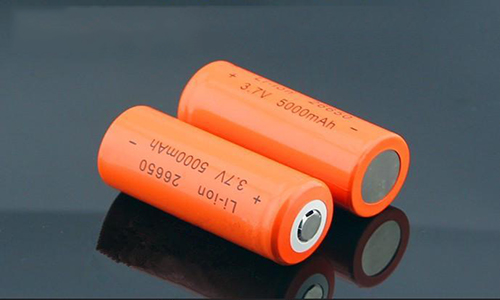Show More About Zinc-Air Battery vs. Lithium-ion
Aug 02, 2019 Pageview:2294
Do you know how everything seems to have a shelf live? In this digital age, a lot of gadgets and electronics thrive on batteries that obviously have different capacities.
Everyone would want to use phones or cars or gadgets, in general, that wouldn’t need to be recharged or even disposed of because somehow it recharges itself and the cycle just continues.
There has been the clamor of cars thriving on water, but what if the only major thing a car needed to generate electricity was oxygen, the very thing that keeps you alive? “Cool” would be an understatement for such innovation and what it can achieve. Let’s take a look at these two battery types.
How Does A Zinc-Air Battery Work?
These batteries generate their power from a series of chemical reactions, but one of their major reactants is oxygen.
The batteries contain an anode which consists of zinc in granulated form and electrolytes with a gelling agent. It also contains a cathode which enables oxygen to come in from the outside to complete the chemical process. When the cathode is exposed to oxygen, the oxygen creates hydroxyl ions.
These ions then move to the anode. The anode is mostly in paste form as the zinc mixed with electrolyte and gelling agents have increased performance. The ions interact with this paste to create zincate. When this is formed, it causes electrons to be released to the cathode to create 1.65 volts of electricity.
Now that electricity is produced, the zincate deteriorates into zinc oxide, and the water is sent to the electrolyte, which is further recycled. Interesting, isn’t it? This is obviously without the classic terms and bogus chemical languages.
Like every other process or equipment, the zinc-air batteries have their fair share of good and bad. So, let’s look at their advantages and limitations.
What Are The Advantages And Limitations Of Zinc-Air Batteries?
Advantages
1.Zinc-Air Batteries have a very high energy density. This is obviously because oxygen is one of their major reactants. Naturally, the use of air would increase weight and volume capacity. They can save more energy than any other type. They have exceptional endurance and will save you so much on replacement costs.
2.They also are long-lasting if they are properly sealed to keep the air out. When properly stored, their shelf life is indefinite.
3.The batteries have a low self-discharge of 2 percent yearly. Though the power capacity of this battery could be a function of so many factors, air availability and cathode area inclusive, since there is no change in the properties of the cathode during discharge, the voltage will remain the same until the battery gets to the point of exhaustion.
4.The zinc-air battery is also ideal for the environment as it does not contain mercury or cadmium. This will reduce the residue produced by the battery and also the recycling costs.
5.They are also easy to transport without licenses or permits.
6.They are tailor-made as they can adapt to any energy demand and also have several model connectors.
7.They are made of inexpensive materials hence they are very low cost.
Limitations
1.Zinc-Air Batteries can be very sensitive to extreme temperatures and humidity. Where there is low humidity, the electrolyte losses water way faster than normal. In extreme humidity, water accumulates the cell and floods the cathode, thereby destroying all the active and functioning properties in there.
2.When carbonate is formed from the availability of carbon dioxide in the air, it reduces the ability of electrolytes to be conducted.
3.When minute cells in the battery are exposed to air, they have a very high self-discharge.
4.When the battery is activated, and in use, it has to be used as quickly as possible because the chemicals in it tend to dry out, rendering it useless.
5.There are ways to recharge zinc-air batteries though not like the conventional ones it is only suitable for batteries with high power like those used to power Street lights and not the ones in wristwatches or remote controls.
6.The beauty of zinc batteries is their portability, their capacity to be minute and still retain a lot of energy; however, for larger or higher current needs, these batteries have to be massive.
7.Mechanical recharging of zinc-air batteries used for high power supplies would require removing the spent zinc cartridge and replacing it with a new one. There is no structure to remove the spent cartridge or renew it, and this seems like a thorn in the flesh for these batteries.
What's The Difference Between Zinc-Air Battery And Lithium-Ion?Battery?
Since the capacity, strengths, and limitations of the zinc-air batteries are already known, let’s compare them with the lithium-ion batteries.
Lithium-ion batteries use lithium first of all, and they are rechargeable in the conventional sense. The ions are moved from the negative electrodes to the positive ones during discharge and back to the negative when charging. They are used for phones and computers and basically, most electronic handheld gadgets. There are quite a number of differences between the Li-ion batteries as they are popularly called and the zinc-air batteries.
1.Well let’s restate the obvious view that the Li-ion batteries are rechargeable while the zinc-air batteries are nonrechargeable, at least not in the conventional sense.
2.In extreme temperature conditions, the zinc-air batteries are damaged as water floods the cathode, but when Li-ion batteries are exposed to such temperatures, the battery life is only reduced but not damaged completely.
3.Li-ion batteries can, however, be hazardous as it contains an electrolyte that is highly flammable and if it is damaged or improperly charged, could result to explosions or fires, and this cannot be said about the zinc-air batteries. Samsung, for example, recalled the Galaxy Note 7 due to such fires induced by lithium ions.
To Wrap It Up
In a way, batteries can safeguard the lifespan of all these equipment and appliances, but like the ever-evolving world, there are constant innovations as people are always looking to improve battery capacities.
- Prev Article: What is the storage voltage for Lipo batteries?
- Next Article: Tell Me More About AA Li-Ion Rechargeable Batteries
Leave Message
Hottest Categories
-
Hottest Industry News
-
Latest Industry News











